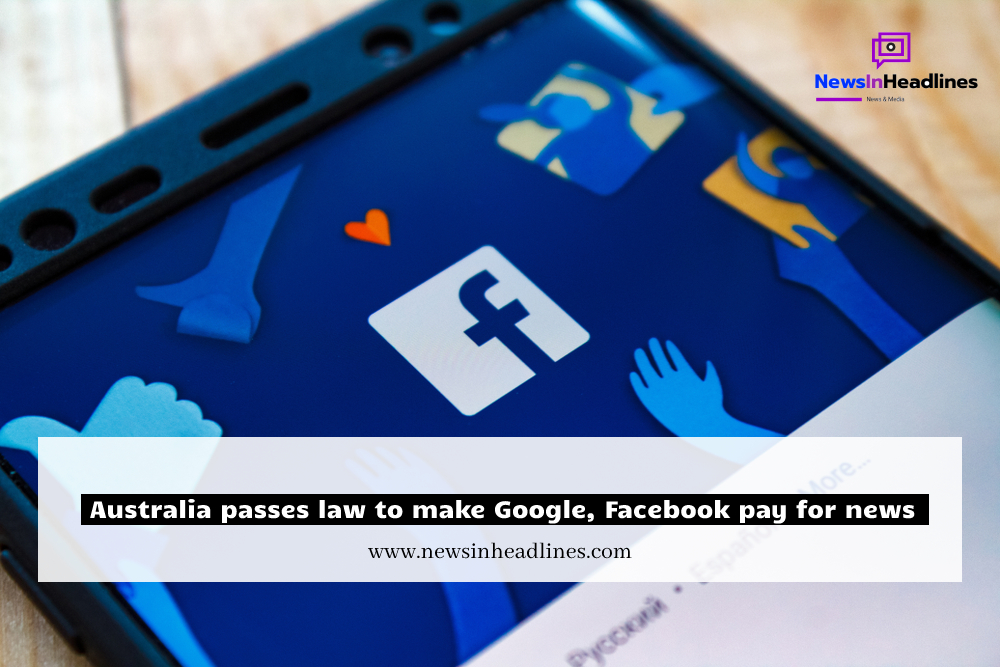
Australia passes law to make Google, Facebook pay for news
CANBERRA: Australia’s legislation forcing Google and Facebook to cover for information are all set to take effect, although the legislation’ architect stated it’ll take some time for its electronic giants to attack websites prices.
The Parliament on Thursday passed the final amendments to the so-called News Media Bargaining Code agreed between Treasurer Josh Frydenberg and Facebook chief executive Mark Zuckerberg on Tuesday.
In return for the changes, Facebook agreed to lift a ban on Australians accessing and sharing news.
Rod Sims, the competition operator who uttered the code, stated he was glad that the amended legislation could address the market imbalance involving Australian information publishers and both gateways to the net.
“The use of the code is to cover the market power that obviously Google and Facebook have. Google and Facebook want media, however they do not require any special media business, and that intended media companies could not conduct commercial prices ,” the Australian Competition and Consumer Commission seat included.
The remaining legislation had passed Parliament before, so that they are now able to be implemented.
Google has struck deals with major Australian information companies lately such as News Corp. and Seven West Media.
Frydenberg stated that he had been happy to see progress by Google and more lately Facebook in attaining commercial prices with Australian information companies.
However, Country Press Australia, that reflects 161 regional papers throughout the nation, has raised worries that little books outside big cities may overlook.
Sims stated he wasn’t surprised the platforms could strike deals with all the massive city companies first.
“I really don’t see any reason why anyone should doubt that journalism will benefit,” Sims explained.”
There matters take time. Google and Facebook do not have infinite resources to go around speaking to everyone.
I believe that has a very long way to play ,” he added.Moos said the laws would probably lead to tiny payouts for many Australian information publishers.
However, Facebook could block Australian information when negotiations broke down.The legislation was created to suppress the outsized bargaining ability of Facebook and Google within their discussions with Australian information suppliers.
The electronic giants wouldn’t have the ability to abuse their positions by creating take-it-or-leave-it payment provides to information companies for their own journalism. Rather, in the instance of a standoff, a mediation panel could make a binding decision on a winning deal.
The changes would provide electronic programs one month’s notice until they are officially designated under the code. That might give those involved more time to agent arrangements until they must enter binding mediation agreements.
A announcement Tuesday from Campbell Brown, Facebook’s vice president for information partnerships, included that the arrangement allows the company to select which publishers it will encourage, such as small and nearby ones.
Frydenberg stated his department will examine the code in a year to”make sure it’s delivering results which are consistent with government’s policy intention.”



Average Rating